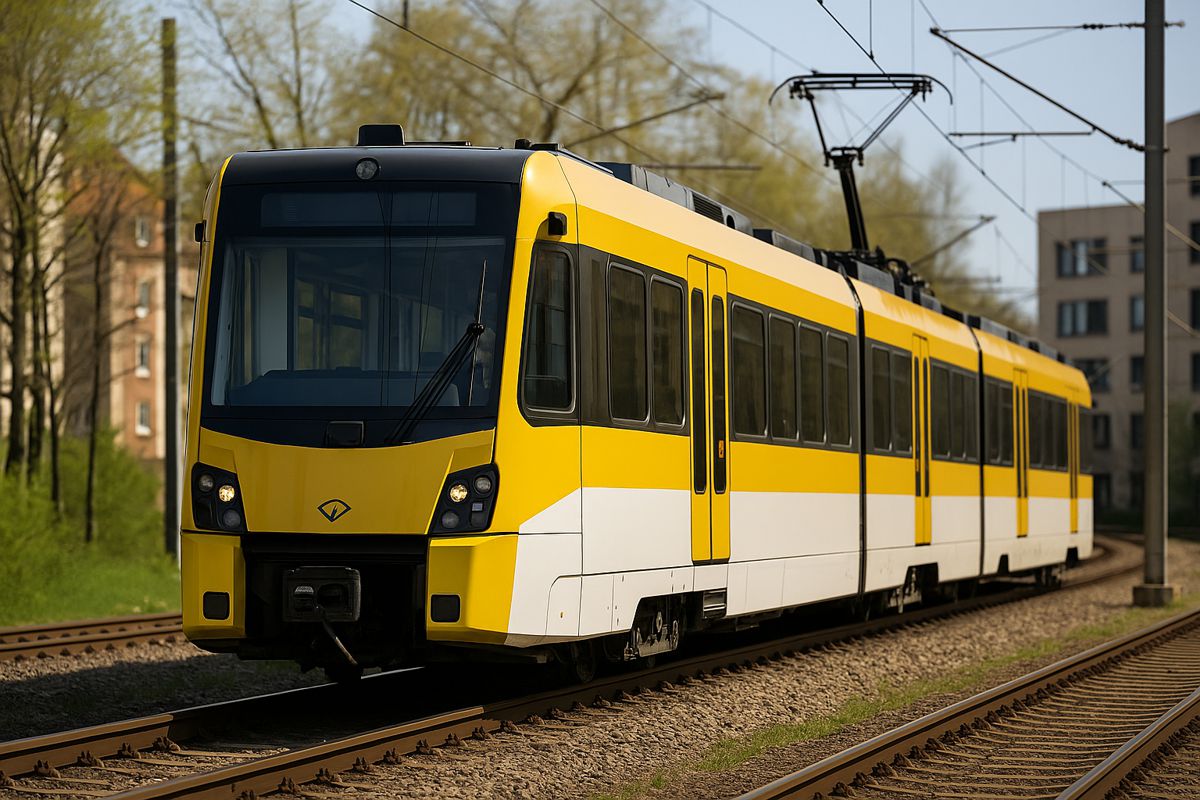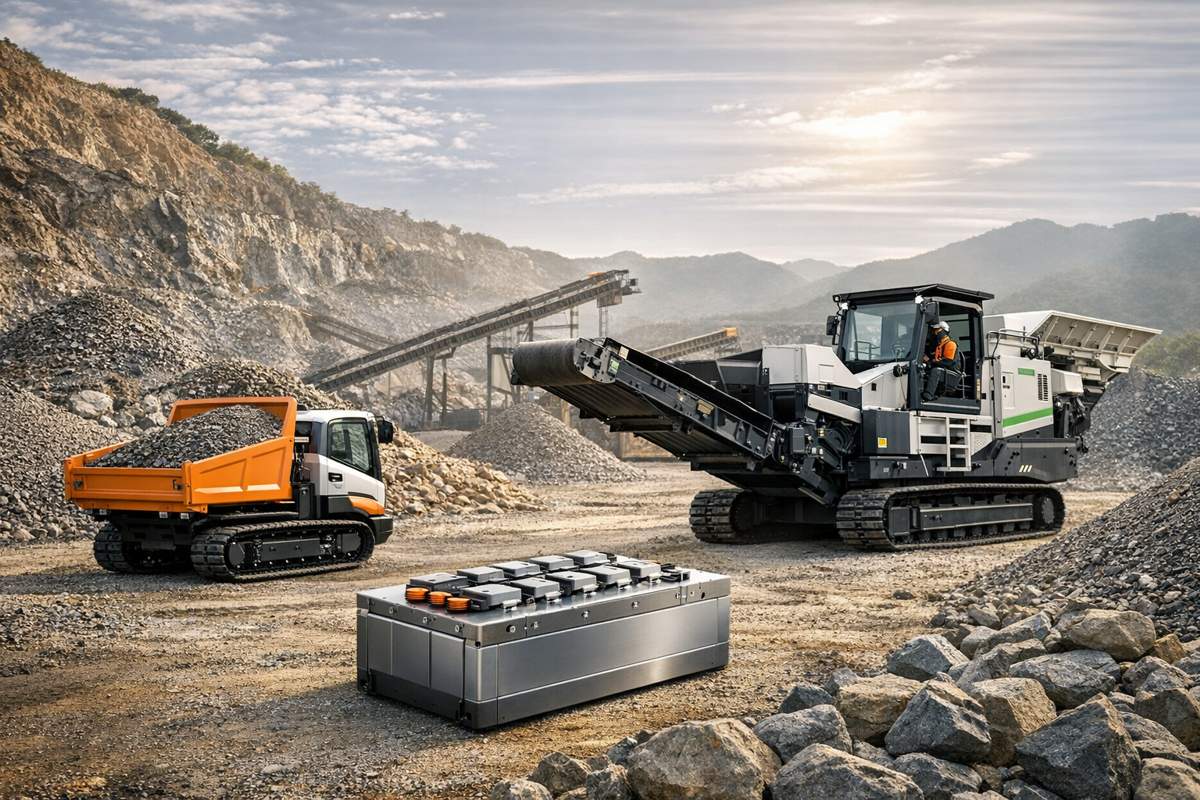KfW IPEX-Bank Backs New Stuttgart Light Rail Fleet with €84m Finance
Stuttgart is making a significant leap forward in sustainable urban mobility. KfW IPEX-Bank has agreed to provide Stuttgarter Straßenbahnen AG (SSB) with an €84 million loan to finance 30 new S-DT8.17 series light rail vehicles.
The funding, signed at the SSB Centre, will cover both replacements and additions to the fleet, further strengthening the city’s public transport network.
The procurement follows the ongoing S-DT8.16 project with Stadler Deutschland GmbH, utilising a contractual option to expand the order. The cost of each S-DT8.17 vehicle is projected at around €6 million, underlining the scale of the investment. Approval for the financing was given by SSB’s Supervisory Board, recognising the critical role these vehicles will play in Stuttgart’s transit future.
A deepening partnership
This is not the first time KfW IPEX-Bank has partnered with SSB. The bank previously financed 40 S-DT8.16 series vehicles, demonstrating a continued commitment to advancing Stuttgart’s transport infrastructure. Structuring and securing the latest loan was supported by HKCF Corporate Finance GmbH.
Aida Welker, Member of the Management Board of KfW IPEX-Bank, emphasised the importance of such initiatives: “We are delighted to once again be able to support our customer SSB and thus contribute to reliable and sustainable mobility in Stuttgart. An attractive public transport offer is an essential component for a successful mobility transition in Germany and the decarbonisation of the transport sector.”
SSB’s leadership echoed this sentiment. CFO Mathias Hueske highlighted the significance of the investment: “The procurement of the two S-DT8.16 and S-DT8.17 series is one of the largest individual investments in the history of SSB. With KfW IPEX-Bank, we have a reliable partner with whom we can jointly finance the mobility transition in Stuttgart and the region and thus continue to drive it forward.”
Technical Director Thomas Moser added: “We are very pleased with the support from KfW IPEX-Bank, which enables SSB to implement the necessary measures to upgrade its light rail fleet.”
Meeting climate goals through transport transformation
The project finance investment in modern, efficient, and environmentally friendly light rail vehicles is central to Stuttgart’s climate and mobility strategies. Public transport plays a crucial role in reducing car dependency, cutting congestion, and lowering greenhouse gas emissions.
Germany’s mobility transition, known as Verkehrswende, hinges on making public transport a more attractive choice for commuters. By adding these state-of-the-art vehicles, SSB aims to improve frequency, capacity, and comfort, directly contributing to the decarbonisation of the city’s transport sector.
The role of KfW IPEX-Bank in sustainable finance
As part of the KfW Group, KfW IPEX-Bank focuses on project and export finance for German and European companies. The bank supports sectors ranging from infrastructure and industrial manufacturing to environmental projects worldwide. It operates with a strong sustainability mandate, aligning all financing activities with the Paris Agreement’s climate targets.
Its sector guidelines for CO2-intensive industries and greenhouse gas (GHG) accounting are aimed at achieving a net-zero emissions portfolio by 2050. This strategic direction ensures that investments not only serve economic development but also support the shift towards a low-carbon future.
KfW IPEX-Bank has a reputation for taking leading roles in financing consortia, bringing together other banks, institutional investors, and insurance firms. Its global presence in key economic and financial hubs reinforces its position as a specialist bank capable of managing complex, large-scale projects.
Stadler’s continuing role in Stuttgart’s fleet modernisation
Stadler Deutschland GmbH, the manufacturer behind both the S-DT8.16 and S-DT8.17 series, has established itself as a trusted partner in Stuttgart’s transit upgrades. The S-DT8 series light rail vehicles are designed for efficiency, accessibility, and low operating costs, making them ideal for modern urban transport systems.
These vehicles feature advanced propulsion systems, energy-efficient technologies, and improved passenger comfort. They are also designed to integrate seamlessly with Stuttgart’s existing light rail infrastructure, ensuring minimal disruption during deployment.
Economic and social benefits for the region
Beyond the environmental gains, the financing and procurement of new light rail vehicles will bring economic and social benefits to the Stuttgart region. The project supports local jobs in manufacturing, engineering, and maintenance while strengthening the region’s industrial supply chains.
Public confidence in transport services often hinges on reliability, safety, and comfort. With these new vehicles, SSB can meet rising passenger expectations, encourage greater public transport usage, and help shift travel habits away from private cars.
Driving Stuttgart’s mobility transition forward
The combination of SSB’s ambitious investment programme and KfW IPEX-Bank’s financial backing underscores a shared commitment to sustainable urban transport. The €84 million loan for the S-DT8.17 series is more than just a procurement deal; it’s a statement of intent to accelerate the mobility transition and build a cleaner, more efficient transport network.
With Stuttgart positioning itself at the forefront of Germany’s public transport transformation, these new light rail vehicles are set to become a cornerstone of the city’s sustainable mobility future.




















